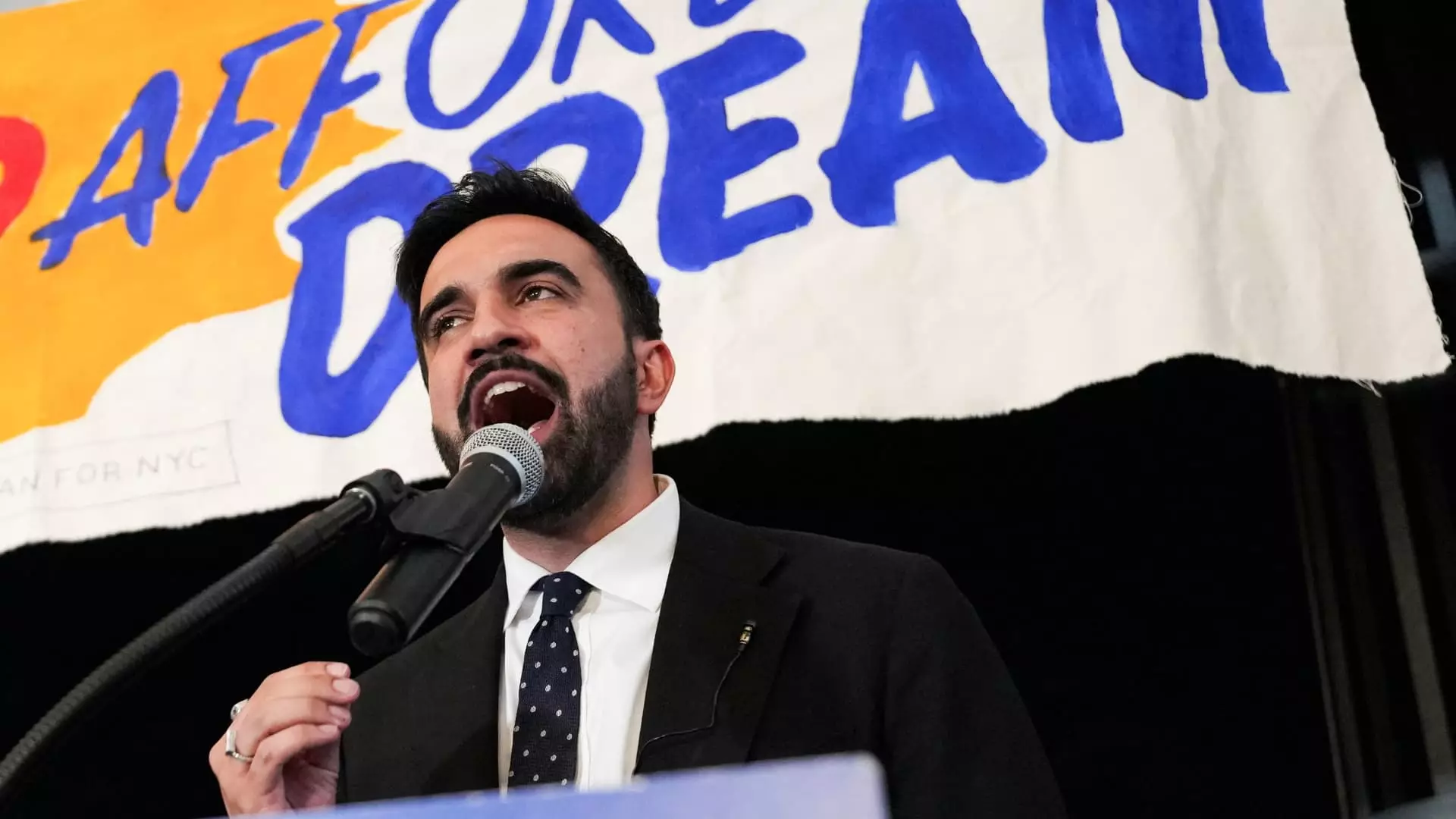The recent incendiary remarks by former President Donald Trump labeling Zohran Mamdani, a New York City mayoral candidate, as a “communist” exemplify a recurring pattern of fearmongering that distorts the realities of American politics. Mamdani’s platform, rooted in democratic socialism, is being deliberately conflated with communism—a tactic historically used to provoke unwarranted panic among conservative audiences. This is not only intellectually lazy but dangerously divisive. While Trump predicts a dystopian “communistic city,” the actual policies Mamdani advocates—such as taxing the wealthy more heavily, implementing rent freezes, and offering free public transit—are pragmatic measures to address the severe economic inequalities plaguing the city. There is a profound difference between advocating for social welfare reforms and endorsing outright communism, a distinction too often ignored in the current political climate.
Investor Anxiety and the Misplaced Business Panic
The uproar among New York’s elite business community following Mamdani’s primary victory speaks volumes about the disconnect between wealth and the lived realities of most New Yorkers. Investors and hedge fund managers openly express concern that heavier taxes and progressive regulations will drive them away from the city. This mindset reflects entitlement rather than foresight—suggesting that the city’s governance should prioritize the preferences of the wealthiest few over the needs of the broader population. Of course, businesses seek predictability and profitability, but their flight should not be the ultimate metric to guide urban policy. What’s striking here is how quickly financial interests mobilize to resist reforms aimed at economic justice, underscoring a broader national problem where capital interests often trump democratic representation.
A Complex Political Battlefield in Gotham
New York’s mayoral race is not simply a contest between radical left and entrenched establishment candidates; it’s a microcosm of deeper political fragmentation. The fact that Andrew Cuomo—who once epitomized political establishment power—was defeated by Mamdani despite overwhelming endorsements, signals a significant shift in voter sentiment. Meanwhile, current Mayor Eric Adams, who appears ensnared in legal and ethical controversies, is running as an independent, further splintering the electorate. The DOJ’s dismissal of the case against Adams, coupled with allegations of political bargaining, casts a long shadow over the city’s governance and reveals troubling intersections between law enforcement and political expediency. These dynamics demonstrate that New York’s political struggles cannot be simplified to a binary of socialism versus capitalism—they reflect a broader crisis of accountability and representation.
Democratic Socialism: Maligned but Necessary
It’s frustrating but predictable to witness democratic socialism weaponized as a scare tactic. In truth, democratic socialism in the context of New York City represents an essential recalibration toward fairness and sustainability. The city faces urgent crises related to affordable housing, public transportation, and income disparity. Rejecting Mamdani’s proposals solely because they challenge current financial orthodoxy ignores the glaring failure of trickle-down economics to deliver equitable prosperity. Democratic socialism is about expanding opportunity and reducing systemic barriers—not dismantling democracy or market economies. However, the reactionary frenzy incited by figures like Trump functions as a diversion from honest debate about how best to support a metropolis that suffers from pronounced class divides and public discontent.
The Broader Implications for American Politics
This controversy over Mamdani’s candidacy is emblematic of a wider dysfunction in U.S. political discourse, where ideological extremes distort the middle ground. Trump’s “communist” label is a blunt instrument of polarization with little basis in reality that inflames cultural wars rather than fostering policy discussion. Such rhetoric risks alienating moderate and progressive voters who seek pragmatic solutions rather than ideological purity tests. For a center-left observer, it’s crucial to advocate for nuanced conversations that address both economic justice and fiscal responsibility without falling prey to scare campaigns. The future of urban governance, especially in iconic cities like New York, depends on embracing complex, workable policies instead of retreating into fear-driven caricatures that ultimately inhibit progress.

